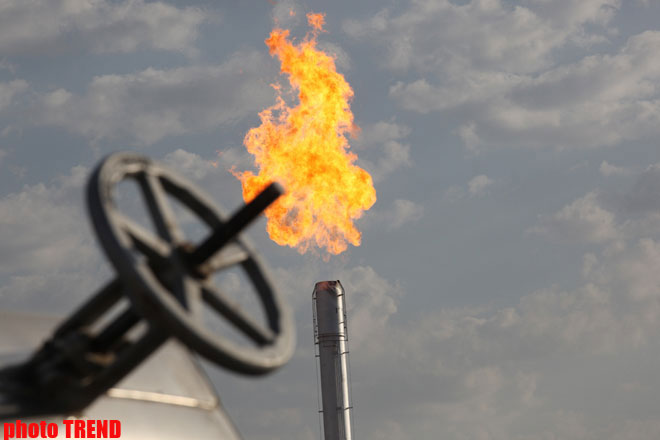Azerbaijan, Baku, Oct. 13 / Trend , H.Hasanov /
The hopes for a Transport Caspian gas pipeline moved a stage closer when UK petroleum strategy experts Gaffney, Cline & Associates (GCA), announced that its initial geological survey showed reserves in the Southern Yoloten field comprising of the Osman, Minara and Yashlar gas fields amounted to as much as 26.2 trillion cubic meters of gas.
This has prompted international observers and Turkmen experts to believe this increases chance of the Transport Caspian Pipeline being built.
In a telephone interview to Trend, a Turkmen economist who wished to remain anonymous said: "The Trans Caspian Pipeline at this stage remains the most appropriate key for Europe to the Turkmen gas reserve."
The expert, who works in a western company related to the Turkmen projects, highlighted the fact that this data was obtained from independent western auditor, GCA.
He went on to say that Brussels regularly points to the Nabucco pipeline project raising fears about the EU not being tied to any one reserve and a new pipeline could be the answer. Egypt, Iraq and Iran have been named as main raw material sources in addition to Azerbaijan and Turkmenistan. The economist suggested Brussels has proposed that Kazakhstan also joins the Trans-Caspian project with a 'multi-polar focus'.
He said: "Kazakhstan is a Caspian state having considerable political authority in the region. It is clear that Turkmenistan which exports its gas to Russia, China and Iran, is interested in the European direction for pragmatic reasons and due to the need to diversify energy supplies.
"High prices and reliable buyers are guaranteed here. Also, the Turkmen gas's entry into Europe could balance the geopolitical presence of China and Russia in the region. Turkmenistan, with its reserves can stake a claim as one of the key suppliers whilst Ashgabat's efforts in this direction are important."
Observers believe Turkmenistan, whilst having announced its readiness to bring fuel to the Caspian Sea borders to get closer to Europe, has actually gone much further in its discussions.
The country launched the construction of a $2billion, 1000-kilometre east-west internal gas pipeline, which aims to link into a single transport network resource of the country's eastern region, namely Yoloten and the neighbouring fields in the Caspian coast. It would be possible to enter the European market by constructing a 300-kilometer pipeline along the seabed through Azerbaijan and Turkey.
Nearly $10 billion has been invested in the development of the Yoloten field, which now stands as the world's second largest gas reserve.
The Turkmen leadership has also voiced its willingness to conduct an environmental impact study by international experts to appease Russia and Iran which oppose the Trans-Caspian gas pipeline having raised the question about its environmental safety.
Observers say these countries have even more significant hydrocarbon reserves and suggest they are acting more out of self-interest.
Following a meeting with EU president Jose Mauel Barroso in Ashgabat in January, Turkmen president Gurbangulu Berdimuhammedov suggested the Trans Caspian Pipeline which could supply Turkmen gas to the EU under the Caspian Sea, is the 'most attractive from a commercial, financial and infrastructural point of view.
Mr Barroso supported the president's statement and noted 'the importance of building the Trans-Caspian Pipeline to ensure reliability and security of the energy supplies to Europe and simultaneously to ensure a stable demand for Turkmen gas'.
Another European leader also intends to voice his support to this project. Following his Baku visit, Austrian President Heinz Fischer arrived in Ashgabat for his first official visit and talks on cooperation in the energy.
Turkmenistan by taking a step ahead, has already declared its readiness to negotiate with consumer Europe) to implement the Trans-Caspian and with Azerbaijan as a transit partner. Negotiations are expected to be completed soon with the signing of agreements






